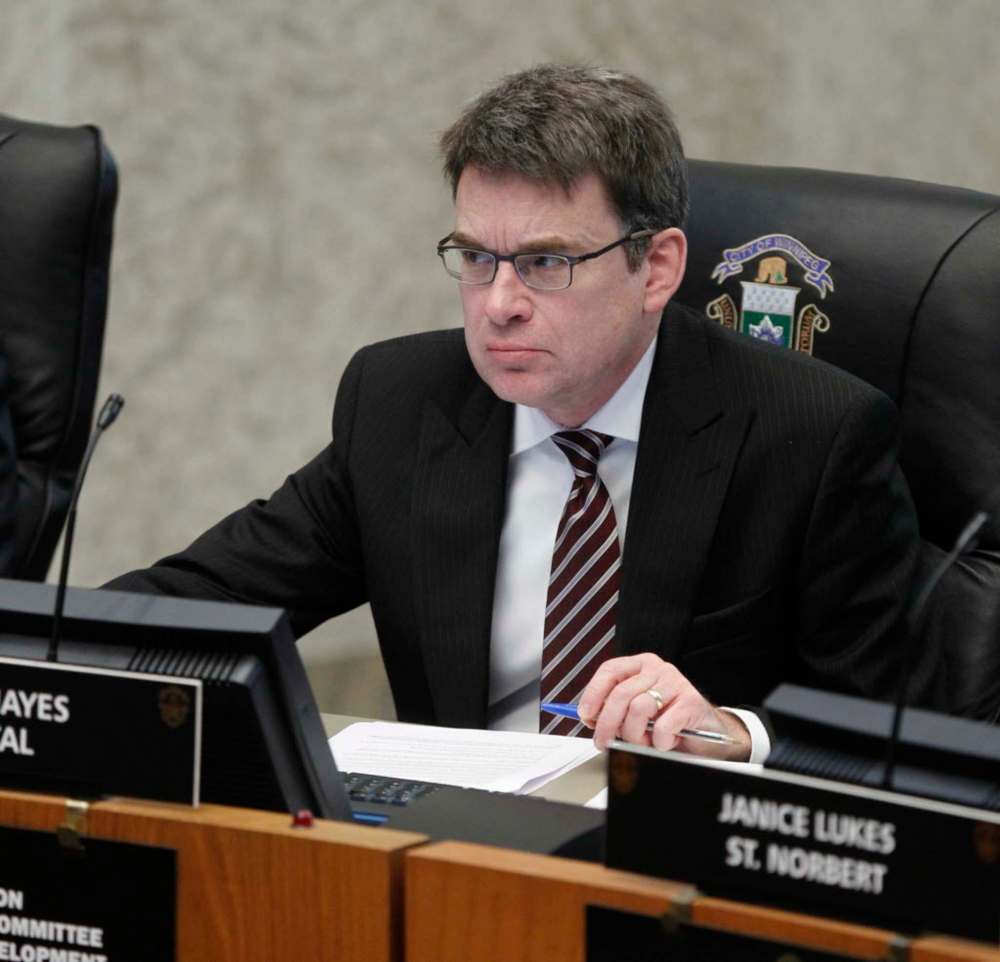Councillor seeks openness on legalities of development fees
Advertisement
Read this article for free:
or
Already have an account? Log in here »
To continue reading, please subscribe:
Monthly Digital Subscription
$1 per week for 24 weeks*
- Enjoy unlimited reading on winnipegfreepress.com
- Read the E-Edition, our digital replica newspaper
- Access News Break, our award-winning app
- Play interactive puzzles
*Billed as $4 plus GST every four weeks. Offer only available to new and qualified returning subscribers. Cancel any time.
Read unlimited articles for free today:
or
Already have an account? Log in here »
Hey there, time traveller!
This article was published 31/10/2016 (3014 days ago), so information in it may no longer be current.
Coun. Brian Mayes is questioning the administration’s decision to refuse to publicly outline its legal defence of the controversial new fee on residential development.
Mayes, chairman of the environment committee and a member of Mayor Brian Bowman’s executive policy committee, said it appears city officials are concerned about tipping off their legal strategy in the event the development community makes good on its threat to fight the fee in court.
Mayes — who, like Bowman, is a former practising lawyer — said he believes the administration’s caution is unwarranted, adding a legal challenge would be fought over well-known ground.

“There is certainly a string of (court) cases out there that I think would support our argument,” Mayes (St. Vital) told reporters Monday. “I think we have a good argument to say this is a regulatory fee; this is not a tax.”
Following the 10-6 vote by council last week to implement what is being called an impact fee on new suburban development, the development community said it would challenge the move in court.
The industry claims that the research and effort undertaken by city hall leading up to the development of the administrative report and bylaw undermine the city’s claim that the fee is a fee – which it can legally impose – and is nothing more than a new tax, which it cannot impose without legislative changes.
Mayes said the city’s decision to allocate revenue from the new fee into a dedicated fund for growth-related infrastructure projects appears to be consistent with court rulings.
“Just calling it a tax doesn’t make it a tax,” Mayes said. “There is a very important legal distinction between a fee and a tax. That’s why these cases go to the Supreme Court.
“If you take the dough and put it into general revenues, that is a tax. If you take the fees and you implement them in accordance with a complex regulatory scheme, then that is an acceptable fee.”
However, Mayes said he understands why the development community is going to court, adding the outcome in such situations is never certain.
“I would challenge it if I was the developers, that’s a fair strategy. I don’t fault them for that,” Mayes said. “All I’m saying is I think I like our chances and if we don’t succeed, we haven’t bet the farm. We’ll do whatever the court tells us to do.”
aldo.santin@freepress.mb.ca











